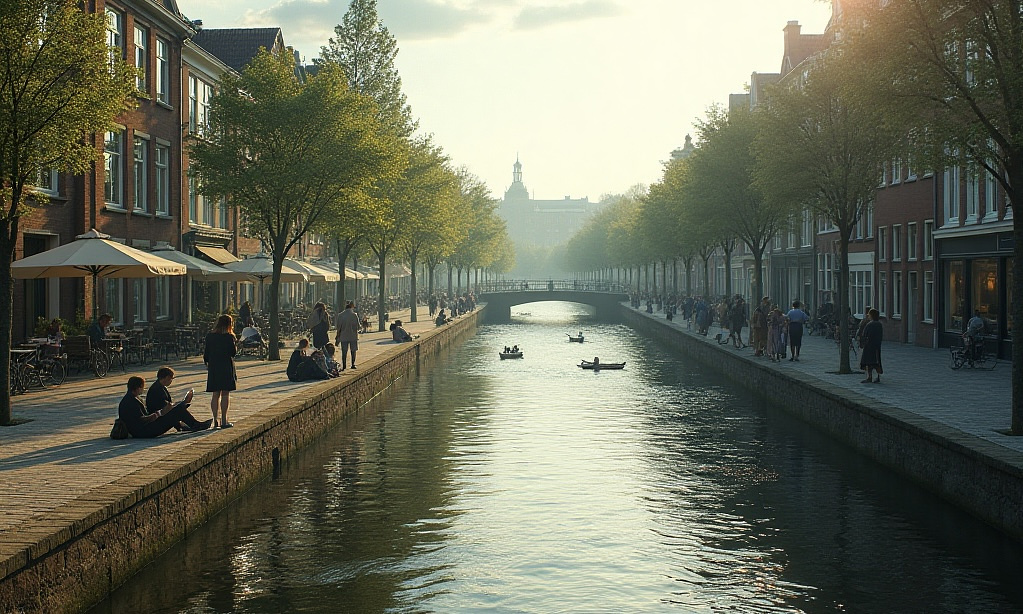Redefining Economics: Beyond Shareholder Value
community"We need to talk differently about economics" ("We moeten anders over economie praten"🔒)—that's the call from Matthias Olthaar in his recent NRC opinion piece. It's a call that resonates deeply with me, both as an economist by training and as someone who spends his days creating value in academic publishing and open access.
I've long believed that our economic conversations are stuck in the wrong groove. Olthaar's piece is a timely nudge to break out of the old pattern and start asking better questions.

The GDP Trap
Ask a group of economics students what "the economy" means, and you'll get answers about money, GDP, and growth.
Olthaar points out that this is a surprisingly recent development. For most of human history, economics wasn't about money at all. It was about how communities organise themselves to live well, using the resources at hand.
GDP—gross domestic product—has become a stand-in for economic health, but it's a deeply flawed metric. When GDP goes up, we say the economy is doing well. But is it, really? If that growth comes from burning people out, trashing the environment, or producing things nobody needs, what are we measuring?
Economics as “Gemeenschapskunde”
Olthaar suggests we should think of economics as "gemeenschapskunde"—the study of community. What do we need for a good life? How do we distribute resources fairly? What should we produce, and why?
When we focus only on maximising output, we turn production into an end in itself—the result: manipulative marketing, planned obsolescence, and the depletion of people and planet. The Global Footprint Network indicates that the Earth can only support 57% of the current global production. We're running on ecological credit.
The Growth Debate: A False Choice
The debate between endless growth and "degrowth" (ontgroei) is stuck. Both sides are fixated on the numbers: more or less GDP. But as Olthaar notes, this misses the point. The real question isn't how much we produce but what and for whom.
If we produced differently—focusing on durability, sharing, and real needs—everyone on earth could live well with just 30% of today's output. Imagine a world where cars last 50 years, where clothing is shared or built to endure, and where headphones come with a lifetime guarantee. These are real examples from companies like e.Volution, Lena, and Repeat. They create value for customers, communities, the environment, and workers. Good for the economy, but not for GDP.
Value to Society, Not Just Shareholders
This is where my work in open access and scholarly communication comes in. I've argued before that we should measure value by what we contribute to society, not just what we deliver to the publisher's shareholders.
The same logic applies to the broader economy. If we keep chasing GDP, we'll keep missing what matters: health, well-being, connection, and sustainability. Olthaar's "alles van waarde-propositie" (everything of value proposition) is a model for this: value for all stakeholders, not just the bottom line.
The Path Forward
The good news is that change is already happening. Social entrepreneurs, cooperatives, and community initiatives are showing new ways forward. We don't have to wait for government policy to catch up. If enough of us start acting differently—as consumers, workers, academics and citizens—the system will shift.
The real economic debate isn't about how to make the GDP graph go up. It's about how to make life better for everyone within the planet's limits.
Key Takeaways
- GDP is a poor proxy for real economic health.
- Economics should be about organising society for the common good, not just maximising output.
- The real value lies in meeting genuine needs in a sustainable and fair manner.
- We need to talk less about growth and more about what kind of economy we want—and why.
References:Olthaar, M. (2025). ‘We moeten anders over economie praten’. NRC, 1 June.